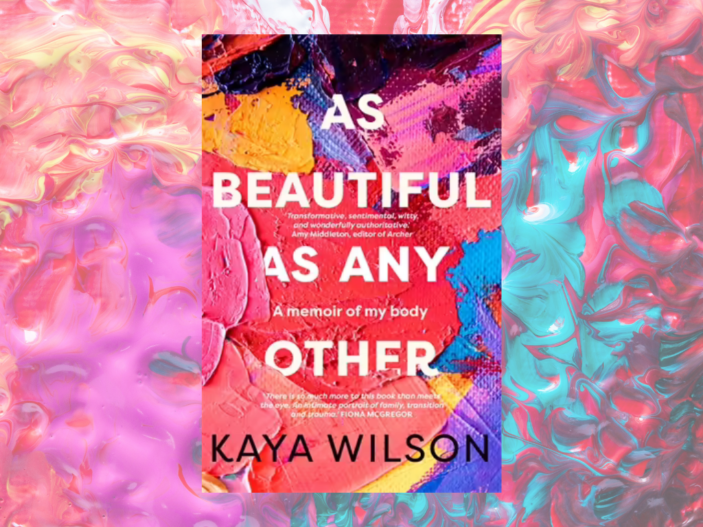
“This is a trans story. But it is also my story.” So says this powerful quote from Kaya Wilson’s memoir: As Beautiful as Any Other. Written as a personal record of his own experiences with both the medical profession and the world, beginning the day Kaya began to question his gender, As Beautiful as Any Other is a powerful and at times confronting memoir. It looks at major themes in its author’s life, such as trauma, home, rage, love, education and travel; whilst also attempting to dispel the idea that any trans experience can be viewed as representing trans people as a whole.
Beginning with a section called ‘Trauma’, Kaya outlines a surfing accident during which he was nearly killed, and the subsequent strangeness of being treated by medical professions who saw him as a woman. Kaya speaks frankly and openly about the feelings of vulnerability that this, and many other episodes of his life have brought on, and in doing so appears to acknowledge the questions that his reader might have about what it is like to live in a trans body.
This opening section of the book is also one in which Kaya grapples with the idea of himself not only in terms of gender but also in terms of his able-bodied status, facing up to the fact that he may be permanently paralysed. Alongside this, Kaya talks of letting go of his identity as a surfer. Having survived this accident, he writes “once the question of being alive had been answered, I had to figure out how I wanted to live.” In part, As Beautiful as Any Other is a memoir which explores exactly this – how best to live, and also how best to understand the world.
In ‘Trauma II’, Kaya travels to the UK and attends the funeral of his father, a man who also had a complicated relationship with gender and sexuality, but because of the time and place where he was born, lived with this side of himself repressed. Coming out to his parents as transgender via email, Kaya gets different reactions from each parent, ‘split[ting] their united front’ as they reply separately. While both reactions were painful, Kaya writes about his parents’ upbringing and experiences as a way to contextualise their feelings for the reader.
Later, at his father’s funeral, he is forced to repeat the experience of coming out to friends and family members again and again. He writes about doing this with a sense of deep understanding for their grief, not necessarily blaming them for their inability to accept the change straight away.
In fact, it is this gentleness and generosity of spirit which pervades the book and gives it such a warm, tender feel despite its heavy subject matter. Even while talking about the strain on Kaya’s relationship with his mother (and an awkward trip that they take to Nepal), the author does not rage against individuals in his life.
Instead, that rage is directed towards the society that has created the misconceptions that see him misgendered and discriminated against. Nowhere is this more poignant than in the chapter ‘Rage’, in which Kaya struggles with his feelings following the rape and murder of Eurydice Dixon – the juxtaposition of feeling vulnerable and sympathising with women, and having a body which is male and also therefore can be intimidating.
Reading As Beautiful as Any Other is like sitting down and having a conversation. Through most of the book, the style is heartfelt and poetic, though at times it does venture into a slightly jarring passive voice. Structuring the book thematically means it is a memoir that can be dipped in and out of. Though I think it should still be read in the order it has been published in for context. There are beautiful moments as well as shocking ones in this book, and in a time when trans issues are becoming more and more visible to the wider reading public, I am so incredibly glad that a book like this one exists.
![]()
![]()
![]()
![]()
![]()
FOUR AND A HALF STARS (OUT OF FIVE)
Kaya Wilson’s As Beautiful as Any Other is out now, published by Picador. Grab yourself a copy from Booktopia HERE.
